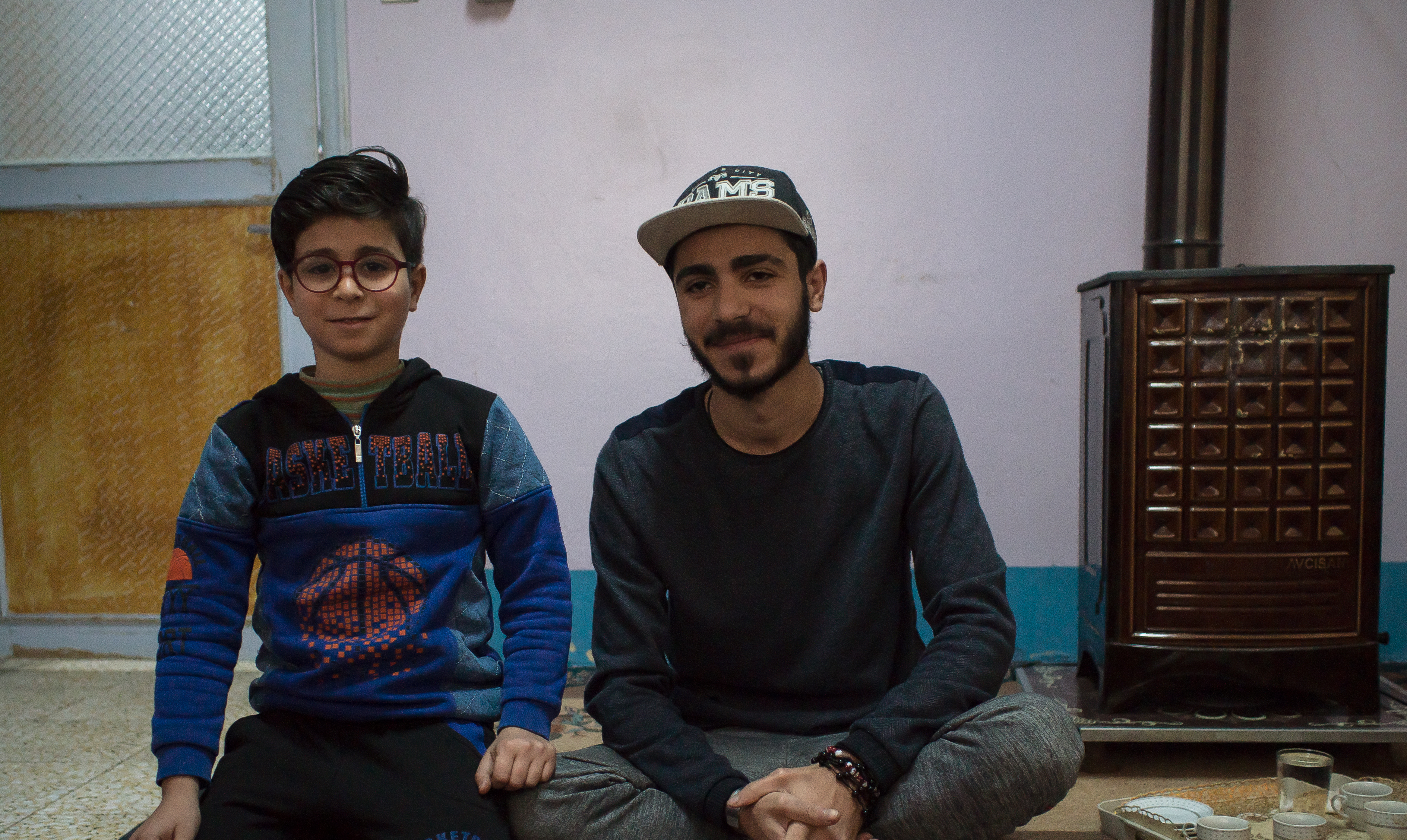Supporting refugees moving to cities from temporary accommodation centres

ANKARA, Turkey: It’s a rainy December day in Kilis, and despite our insistence that she should not bother making coffee, Emira, a 38-year-old teacher from the village of Tarafat in Syria, is adamant that visitors to her new home shall take a hot beverage. Her sons – Ali, 20, and Uveys, 11 – help with the service, as they do with other chores around their two-bedroom flat throughout the day.
Emira and her sons are happy to be able to welcome guests, a privilege that they longed for while staying at Elbeyli temporary accommodation centre, located on the outskirts of Kilis. They are among the 725 refugee families who decided to move out of Elbeyli in November 2018, when it was announced that support would be available for residents who chose to relocate to cities within the context of Directorate General of Migration Management’s (DGMM) programme to scale down Turkey’s temporary accommodation centres. The programme has involved the closure of five temporary accommodation centres and the decongestion of a further three, including Elbeyli, in its first phase, and is welcomed by UNHCR as a further step towards enabling refugees’ social integration. DGMM and UNHCR has worked together throughout the process to support refugees’ relocation, providing transportation for those who opted to transfer to other temporary accommodation centres and making available short-term financial assistance to help cover the costs associated with settling in an urban environment for residents who chose to move to cities.
Emira’s family had started to live in Elbeyli temporary accommodation centre in early 2014, a year after coming to Turkey to flee the conflict in neighboring Syria. “Living in the camp made it difficult for us to travel to see my brother, who lives in Gaziantep province,” Emira explains, noting the reasons behind their decision to relocate. She says that certain aspects of temporary accommodation centres make them more comfortable than cities, but stresses that the freedom to move as needed is important to her family. Ali, who has started to look for a job after moving to Kilis, agrees with her mother. “In order to find full-time work, you need to assure employers that you can be flexible with your schedule,” he adds. Ali and his brother Uveys are both a bit shy about admitting that they miss their friends in Elbeyli, but have started to make connections in their new community.
Emira explains that she has continued to teach at the school for refugee children in Elbeyli temporary accommodation centre after the move, but notes that paying for the first few months’ rent, a new expense in the family’s budget, would not have been possible without the relocation package provided by UNHCR. The package aims to help families like Emira’s integrate more easily in host communities, and entails a one-off cash transfer to assist refugees in covering for immediate needs. It is provided within the context of UNHCR’s “Alternative to Camps” scheme, initiated as the decision to close or decongest several of Turkey’s temporary accommodation centres began to take effect in September 2018.
While DGMM has left the choice of which city to move to temporary accommodation centre residents, many of the refugees who relocated to urban locales in the decongestion and closure process opted for nearby city centres. Emira says she decided on Kilis to be close to her late husband’s extended family, who live a few blocks away, and to ensure that the process of transporting their belongings between the temporary accommodation centre and their new residence would not be too taxing. The family started to look for a place to rent while still living in Elbeyli, well in advance of their scheduled move to the city. They were able to receive help from their Kilis-based relatives in the search, but the process of finding a flat was riddled with false starts, and took almost a month to finalize.
Despite this difficulty, Emira, Ali and Uveys seem happy to be able to live more independently and to reconnect with their relatives. While the expression that appears on Emira’s face when asked about their house in Tarafat, long since destroyed, is a clear indication that she will never not miss home, she is hopeful that their new residence will allow them to put down roots again. The family intends to move into a flat with more space once their conditions improve, so that it will be easier to care for the newborn in the house, the 6-month-old daughter of Emira’s eldest son who is still in Syria. As Ali begins enrolling in Turkish language courses, which will help with his employment prospects, and as Uveys’s school schedule starts shaping up, Emira will have more clarity about the future, and will be able to support further her children in their plans to lead a more settled life.
UNHCR Turkey was able to assist refugees who transferred between or moved out of Turkey’s temporary accommodation centres in 2018 thanks to the generous and loosely earmarked support of the United States of America, Germany, Canada, the Republic of Korea, and France to the country operation. Loosely earmarked contributions allow UNHCR critical flexibility in how to respond to emerging needs, and implement programmes as fully as possible.
